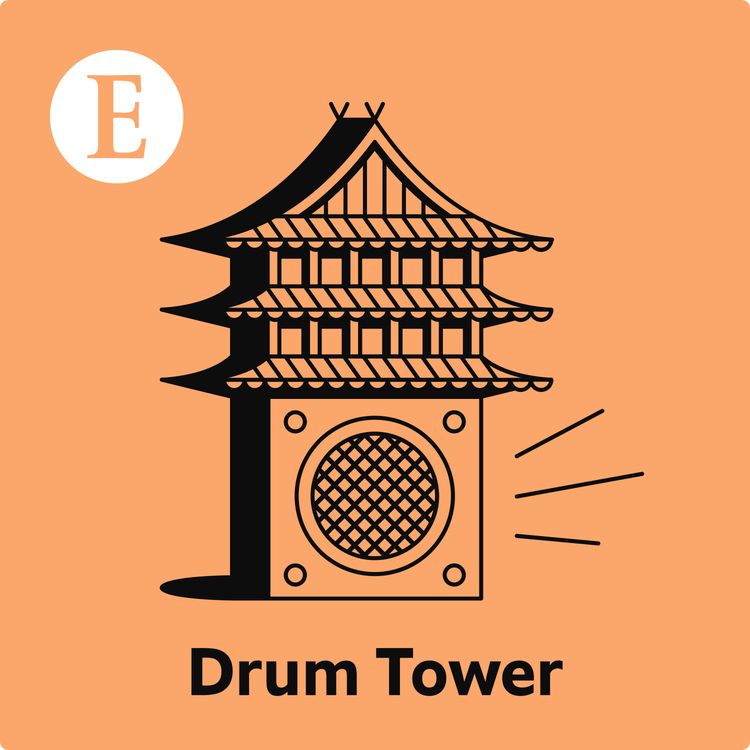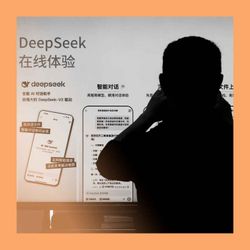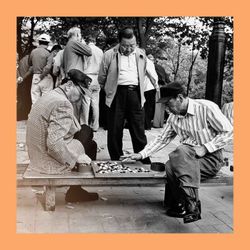Share

Drum Tower
Drum Tower: Inside Fortress China
•
Panzhihua used to be a state secret. The steel-making city, buried deep in the mountains of Sichuan, formed part of Mao Zedong’s Third Front, a covert plan to move core industries inland in case America or the Soviet Union attacked.
David Rennie, The Economist’s Beijing bureau chief, travels to Panzhihua to reflect on China’s ambitious, costly experiment in self-reliance. He and Alice Su, The Economist’s senior China correspondent, ask what lessons the city provides today and what happens when China’s leaders choose national security over economic interests.
Sign up to our weekly newsletter here and for full access to print, digital and audio editions, as well as exclusive live events, subscribe to The Economist at economist.com/drumoffer.
More episodes
View all episodes

China’s DeepSeek year
33:35|In January 2025, a little-known Chinese firm stunned the world. A year later, we examine DeepSeek’s influence on the AI industry at home and abroad. When the startup releases its new model this month, what will the impact be?Hosts & Guests: Sarah Wu, co-host of “Drum Tower” Alex Hern, The Economist’s AI writer Topics: DeepSeekChinese AI industry Large language models Transcripts of our podcasts are available via economist.com/podcasts.Listen to what matters most, from global politics and business to science and technology—subscribe to Economist Podcasts+. For more information about how to access Economist Podcasts+, please visit our FAQs page or watch our video explaining how to link your account.
Why China is promoting skills over degrees
26:59|China has too many graduates and not enough jobs for them. The government is pushing vocational training as the solution, but will it work? Hosts: Sarah Wu, co-host of “Drum Tower”Simon Cox, The Economist’s China economics editor Topics covered: Vocational education in ChinaGraduate unemployment in ChinaChina’s economyTranscripts of our podcasts are available via economist.com/podcasts.Listen to what matters most, from global politics and business to science and technology—subscribe to Economist Podcasts+. For more information about how to access Economist Podcasts+, please visit our FAQs page or watch our video explaining how to link your account.
Strait-talking: the Taiwanese politician who wants to meet Xi Jinping
38:11|As China ramps up military drills around Taiwan and American support for the island appears to be wavering, Taiwan’s opposition leader is arguing for closer ties with the mainland. Cheng Li-wun sits down with Drum Tower to explain why. Hosts: Jeremy Page, The Economist’s China chief correspondent and Sarah Wu, our China correspondent.Guest: Cheng Li-wun, chair of the Kuomintang (KMT), Taiwan's largest opposition party.Transcripts of our podcasts are available via economist.com/podcasts.Listen to what matters most, from global politics and business to science and technology—subscribe to Economist Podcasts+. For more information about how to access Economist Podcasts+, please visit our FAQs page or watch our video explaining how to link your account.
Go-ing nowhere: the bust-up dividing East Asia
36:17|Go, one of the world’s oldest board games, is played across China, Japan, and Korea. But a dramatic row over the rules is inflaming age-old tensions between the three countries.Hosts: Jiehao Chen, our China researcher and Jeremy Page, The Economist’s chief China correspondentTranscripts of our podcasts are available via economist.com/podcasts.Listen to what matters most, from global politics and business to science and technology—subscribe to Economist Podcasts+. For more information about how to access Economist Podcasts+, please visit our FAQs page or watch our video explaining how to link your account.
Trailer: Boss Class Season 3
02:18|AI is changing how we work. It's turning us all into managers. Be a good one.The Economist’s management columnist, Andrew Palmer, takes on the bots in the third season of Boss Class. From cloning to coding, agents to entry-level jobs, he tackles the threat head on and figures out how to turn anxiety into opportunity. Along the way he meets bulls and bears and the people who can help you to master management in the age of AI.Full Season 3 out 29th January 2026.To listen, subscribe to Economist Podcasts+.If you’re already a subscriber to The Economist, you have full access to all our shows as part of your subscription. For more information about how to access Economist Podcasts+, please visit our FAQs page or watch our video explaining how to link your account.
War of words: the jailed tycoon taking on the state
30:20|Since his arrest on charges of financial crime in 2019, one of Hebei’s richest businessmen has been held without trial. Now, he’s penning scalding criticism of local officials, and appealing to Xi Jinping from behind bars.Hosts: Sarah Wu, The Economist’s China correspondent and Don Weinland, our China business and finance editor.Guest: James Zimmerman, Beijing-based lawyer and writer.Transcripts of our podcasts are available via economist.com/podcasts.Listen to what matters most, from global politics and business to science and technology—subscribe to Economist Podcasts+. For more information about how to access Economist Podcasts+, please visit our FAQs page or watch our video explaining how to link your account.
Strike force: What China will learn from Venezuela
30:41|China’s leaders were swift to denounce America’s dramatic night-time extraction of Venezuelan president Nicolás Maduro. But the country’s nationalist commentators are asking if the US assault could offer lessons for a future attack on Taiwan.Hosts: Jeremy Page, our chief China correspondent and Sarah Wu, The Economist’s China correspondent Guest: Drew Thompson, former Pentagon official and senior fellow at Nanyang Technological University, SingaporeTranscripts of our podcasts are available via economist.com/podcasts.Listen to what matters most, from global politics and business to science and technology—subscribe to Economist Podcasts+. For more information about how to access Economist Podcasts+, please visit our FAQs page or watch our video explaining how to link your account.
Red dirt: China’s bid to control a new supply chain
32:35|Beneath a ridge in Guinea’s southern highlands lies one of the world's largest deposits of iron ore. Chinese investment has got it out of the ground after decades of delays. But will the Simandou mining project give China the upper hand it hopes?Hosts: Jiehao Chen, The Economist’s China researcher, and Corbin Duncan, our global correspondent.Transcripts of our podcasts are available via economist.com/podcasts.Listen to what matters most, from global politics and business to science and technology—subscribe to Economist Podcasts+. For more information about how to access Economist Podcasts+, please visit our FAQs page or watch our video explaining how to link your account.
Secret script: China’s women-only language
31:40|Nushu emerged from the isolated villages of southern China and is the only language created and used exclusively by women. Today it is celebrated across China as a symbol of female empowerment, but the last natural inheritor saw a different meaning. Host: Jiehao Chen, The Economist’s China researcher.Transcripts of our podcasts are available via economist.com/podcasts.Listen to what matters most, from global politics and business to science and technology—subscribe to Economist Podcasts+. For more information about how to access Economist Podcasts+, please visit our FAQs page or watch our video explaining how to link your account.